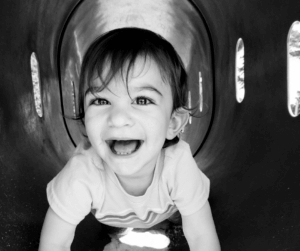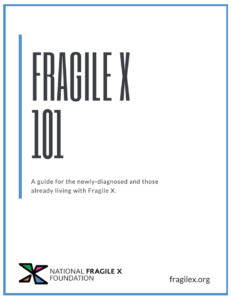What would you like others to know about him? 
Avi was an extremely difficult infant. He was colicky, fussy, and often inconsolable. He screamed…and I mean SCREAMED when we went anywhere in the car, woke up every hour at night, always had to be moving in someone’s arms, and would never just lay in his car seat at restaurants like other babies would. If you have an infant like this, hang in there! He is two now and is one of the happiest, sweetest, funniest toddlers I’ve ever met. His sense of humor surprises me sometimes. Would I describe him as “easy” now? No. Does he sleep through the night consistently? No. We still have to leave restaurants sometimes, can never stay out anywhere past his bedtime, have to stick to a strict routine, and need to make sure we provide enough sensory input throughout the day in order for him to have a decent night’s sleep. His smile, laugh, open mouth kisses (he still hasn’t grasped the concept), determination, strong will, and sense of humor will capture anyone’s heart. And, if Avi were writing this, he would also want everyone to know about his love of avocados.
What is your favorite thing about him?
My absolute favorite thing about Avi is his laugh. This child has THE best laugh I have ever heard. It is the type of laugh that just makes everyone around him smile and laugh along with him. Another is his constant state of wonder. Seeing those little arms flap when he’s excited makes my heart smile. There are times, especially in public when people start to stare, that I might wish he didn’t flap and stim. But then I remember that those are my insecurities, not his flaws, and his joy and excitement is far more important. Finally, (because I couldn’t choose just one thing) is how unbelievably sweet he is.
If you could tell someone who doesn’t know anything about Fragile X one thing, what would it be?
Similar to Autism Spectrum Disorder, if you know one kid with Fragile X, you know one kid with Fragile X. Although they might share many common traits, they are all so different and unique. Be patient and kind. And if you are a parent, it’s going to be okay.
What is your advice for newly diagnosed families?
My advice for newly diagnosed families to first to allow yourself permission to grieve; to mourn the life you had imagined for your child, the life you had imagined for your family, the hopes and dreams that you had envisioned. Understand that it is okay to feel whatever you’re feeling; to be sad, angry, worried, lost, and confused. Then, begin reaching out to other families who understand what you’re going through. Join a Fragile X support group in your area. Be weary of the Internet. While it can be a tool of knowledge, it can also be a tool of misinformation and negativity. Know that support from friends and family is important, but, that no matter how they try, they may never understand or “get it”. The grief comes and goes in waves. We only found out 7 months ago, and I am still constantly cycling between anger, hopelessness, sadness, empowerment, strength, courage, hope, and then anger again. Most days though are days of strength and courage because there’s no other choice. My sweet boy needs a strong mama who can spread awareness, advocate for his needs, be a voice for him since he hasn’t quite found his yet, roll cars and trucks back and forth for what seems like hours, and give unlimited hugs and kisses. A diagnosis can drive treatment and intervention, but at the end of the day remember that your child is still the same child they were before, the diagnosis didn’t change that.
What do you want your community to know about Fragile X?
I would want the community to know that my son is not his diagnosis. He surprises us every day with his strength and resilience. Children and adults with Fragile X are listening even if they aren’t communicating back with words. Please be kind, patient, and help to spread awareness so that future generations might have even better outcomes.
What advice do you have for parents/caregivers who are considering participating in research studies and/or clinical trials?
It is my belief that participating in research studies and trials is imperative for the future treatment of Fragile X. Only participate in what you are comfortable with, of course, but consider the long term goals of the studies and how it might affect future generations of children and adults with Fragile X syndrome.
About Faces of Fragile X
We asked parents, caregivers, and others to answer a few questions about their loved ones with Fragile X. These are the Faces of Fragile X, and This is Fragile X. If you would like to learn more about Fragile X, start here.


